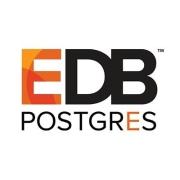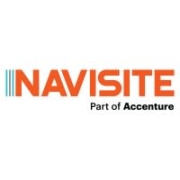DBaaS offers scalable database management hosted in the cloud, eliminating the need for physical infrastructure. It is tailored for efficient data handling, providing flexibility and cost-effectiveness for businesses seeking streamlined data operations.
Database as a Service provides organizations with managed database solutions, effectively reducing the complexity associated with traditional database management. Companies opting for DBaaS benefit from its scalability, automated backups, and high availability. It supports multiple database types and allows integration across various platforms, enabling businesses to focus on data utilization rather than infrastructure difficulties. Customers benefit from security measures integrated into the platforms, enhancing data protection and compliance with industry regulations.
What are critical features of Database as a Service?In finance, DBaaS supports large-scale data transactions with enhanced security, whereas in healthcare, it facilitates patient data management compliance. E-commerce platforms utilize it for real-time analytics and personalized customer solutions, enhancing user experience.
DBaaS assists organizations in simplifying database management, enabling them to focus on core business objectives by managing data efficiently, eliminating the need for in-house database expertise, and improving adaptability to technological advancements.
| Product | Market Share (%) |
|---|---|
| Amazon RDS | 14.8% |
| MongoDB Atlas | 12.7% |
| Microsoft Azure SQL Database | 11.3% |
| Other | 61.2% |

































DBaaS provides several advantages like reducing management complexity and improving scalability. By using DBaaS, you can focus more on your application development rather than database maintenance. It often eliminates the need for dedicated database infrastructure and specialists, offering cost savings. The flexibility and automated backups within a DBaaS platform ensure high availability and data integrity.
How secure is DBaaS for enterprise use?Security in DBaaS is robust, as providers implement strict security protocols including data encryption, regular security audits, and compliance certifications (like GDPR and HIPAA). Additionally, service-level agreements often include high security standards. You have control over access permissions, ensuring only authorized users can reach sensitive data. Monitoring and logging features also enable you to detect anomalies swiftly.
How does DBaaS handle scaling to accommodate business growth?DBaaS platforms efficiently manage scaling through built-in features that allow automatic adjustment of resources based on demand. As your data needs grow, you can seamlessly scale up by increasing storage and compute power without complicated migrations or downtime. Horizontal scaling options allow you to distribute workloads across multiple database instances, ensuring performance remains optimal even with increased traffic.
Can DBaaS be integrated with existing IT infrastructure?DBaaS is designed for seamless integration with existing IT infrastructure. Most platforms offer APIs and SDKs to ensure smooth communication between your applications and the database. You can integrate DBaaS with various tools and services you may already rely on, like analytics and DevOps solutions. Additionally, hybrid cloud architectures are possible, enabling you to use DBaaS alongside on-premises systems for a cohesive IT environment.
What are the cost considerations when adopting DBaaS?Adopting DBaaS can be more cost-effective compared to traditional database management. You typically pay a subscription fee based on usage metrics like storage capacity and the number of active connections. Hidden costs can include data transfer fees or advanced features, so it's crucial to understand your usage patterns and choose a plan that aligns with your needs. The reduction in hardware and personnel costs often offsets the subscription costs.